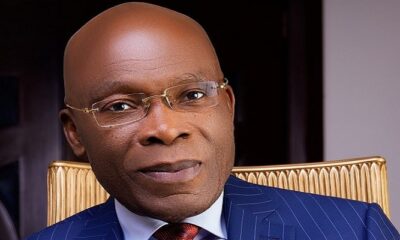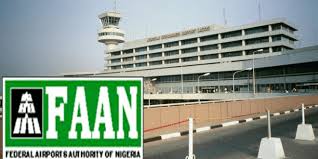News
Youth Population to Drive Strong Subscriber Growth Across Sub-Saharan Africa- GSMA Study Revealed
Sub-Saharan Africa will remain the world’s fastest-growing mobile region over the coming years as millions of young African consumers become mobile users for the first time, according to a new GSMA study.
It reveals that more than 160 million new unique mobile subscribers[i] will be added across the region by 2025, bringing the total to 623 million, representing around half of the region’s population, up from 456 million (44 per cent) in 2018. Subscriber additions will be concentrated in high-growth markets such as Nigeria and Ethiopia, the report says.
“A new generation of youthful ‘digital natives’ across Sub-Saharan Africa are set to fuel customer growth and drive adoption of new mobile services that are empowering lives and transforming businesses,” said Akinwale Goodluck, Head of Sub-Saharan Africa, GSMA.
“With mobile technology at the heart of Sub-Saharan Africa’s digital journey, it is essential for policymakers in the region to implement policies and best practices that ensure sustainable growth in the mobile industry, and enable the transition to next-generation mobile networks.”
The study calculates that the mobile ecosystem across Sub-Saharan Africa generated almost $150 billion in economic value last year – equivalent to 8.6 per cent of the region’s GDP. It is forecast to generate almost $185 billion (9.1 per cent of GDP) by 2023.
The 2019 Sub-Saharan Africa edition of the GSMA’s Mobile Economy report series is being published at the ‘Mobile 360 – Africa’ event being held this week in Kigali, Rwanda. The new report also reveals that:
- Around 239 million people, equivalent to 23 per cent of the region’s population, use the mobile internet on a regular basis.
- Smartphones accounted for 39 per cent of mobile connections[ii] in Sub-Saharan Africa in 2018, forecast to increase to two thirds of connections by 2025.
- 3G will overtake 2G to become the leading mobile technology in Sub-Saharan Africa this year.
- 4G will account for almost one in four connections by 2025. However, 4G uptake is being dampened in some markets by the high cost of 4G devices and delays in assigning 4G spectrum.
- The region’s mobile operators are increasing investment in their networks and are expected to spend $60 billion (capex) on network infrastructure and services between 2018 and 2025 – almost a fifth of this total being invested in new 5G networks.
- Sub-Saharan Africa’s mobile ecosystem supports around 3.5 million jobs, directly and indirectly, and last year contributed almost $15.6 billion to the funding of the public sector through consumer and operator taxes.
The new report ‘The Mobile Economy, Sub-Saharan Africa 2019’ is authored by GSMA Intelligence, the research arm of the GSMA. To access the full report and related infographics, please visit: https://www.gsma.com/r/mobileeconomy/sub-saharan-africa/
News
CSCS Harps on the Role of Tech in Boosting Capital Market Activities
The Central Securities Clearing System (CSCS) Plc has stated that technology would play a key role in deepening Nigeria’s capital market.

Mrs Onome Komolafe, the Divisional Head, Business Services and Client Relations, CSCS , said this during a panel session with the theme: ‘Bank Recapitalisation: Bridging the Gap Between Investors and Issues in the Nigerian Capital Market’ at a workshop for Capital Market Correspondents held recently in Lagos.
Komolafe noted that the Nigerian Central Securities Depository has launched several tech interfaces to ease transactions in the capital market.
She said, “In terms of technology, in the last five years, CSCS has deployed a lot of Application Programming Interfaces (APIs.) Let me not bore you about what APIs are, but a lot of infrastructure that enables brokers to be able to interface with the market without necessarily coming to CSCS.
“Today, you can do your account opening for your client from the comfort of your office. You don’t have to come to CSCS for most of this because different portals have been deployed. If you want to submit documents to CSCS, you don’t have to be there. So, we’ve deployed a lot of APIs to the market for self-service options.”
On the level of acceptance of the deployed technological innovations, Komolafe stated that the market has been receptive even as they were seem to be some concerns on the part of the CSCS over attempts to shorten the settlement time.
“This is a market that started at T+5 but today we are T+3, and we’re engaging actually to reduce the settlement period. So first, we’ll talk about much of the reduction in the settlement cycle that has happened.
“You will see that we can’t do much if we don’t have the right technology and CSCS has deployed technology. The market has accepted most of the technology from account opening from a direct cash settlement, reduction of settlement cycles, cybersecurity, and everything that CSCS has brought to the market has been accepted, and that’s why we see this evident transformation in the market”.
News
Sanctions on Air Peace, Other Were for Consumer Protection Infractions, Not Safety- NCAA
Nigeria Civil Aviation Authority, (NCAA), has said that the sanctions initiated against five airlines recently were for consumer protection-related infractions, and not for safety concerns.

Recalled that two weeks ago, Michael Achimugu, director, Consumer Protection and Public Affairs, NCAA , issued a warning that any airline that delays the payment of refunds to passengers within the stipulated time frame in Part 19 of the NCAA Regulations 2023, will be sanctioned.
A week later, the Regulatory agency announced that it had initiated enforcement action against Royal Air Maroc, Ethiopian Airways, Air Peace, Arik Air, and Aero Contractors.
Furthermore, Capt. Chris Najomo, acting director-general, NCAA, called an emergency stakeholder meeting to find lasting solutions to flight delays and cancellations, where he advised operators to trim their operations according to the number of aircraft they have and to treat consumer complaints with the desired urgency.
Reacting to the announcement, Allen Onyema, chairman of Air Peace, said he had noticed that some of his finance staff actually delayed some of those payments and he was not happy about it as his vision does not align with any practice that inconveniences his passengers.
He accepted the NCAA’s enforcement action and said the airline would improve its response time to such complaints.
Reports on some media platforms however suggested that the airlines may have been sanctioned for much more than just flight disruption issues.
In a statement sent in by Mr. Achimugu, he said, “Even the DGCA publicly announced at a stakeholders meeting in Lagos, the names of the airlines, and the reasons for the enforcement actions. My department is strictly for consumer protection issues, not technical matters. So why would anyone think that i can sanction an airline for safety reasons?”
“It is important to note that we do not sensationalise serious issues. The department protects both the operators and passengers and will continue to be an unbiased umpire,” He concluded.
News
Ekeh, Zinox Group Founder Urges Entrepreneurs to Prioritise Integrity, Due Diligence
Leo Stan Ekeh, chairman, Zinox Group, urged Nigerian entrepreneurs to prioritise integrity, due diligence, and resilience in navigating the country’s challenging business landscape.

In an end-of-year inspirational talk to a select group of young Nigerian entrepreneurs, monitored in Lagos, Ekeh expressed optimism about Nigeria’s economic prospects, predicting an economic rebound by the third quarter of 2025.
He also warned the young entrepreneurs about the rising threat of corporate blackmail, drawing from his own experiences in the business world.
Ekeh recounted his decade-long battle with corporate blackmail involving Benjamin Joseph, CEO, Citadel Oracle Concepts Ltd.
Recall that the controversy dates back to 2012, when Citadel Oracle Concepts Ltd. was among 13 companies awarded a Federal Inland Revenue Service (FIRS) contract for the supply of HP laptops.
Procurement for the project was mandated through authorised distributors. TD Africa, a subsidiary of the Zinox Group and Nigeria’s largest HP partner, was approached by Citadel’s authorised representative, Princess Kama, to supply the laptops on credit.
The arrangement required FIRS payments to be deposited into a dedicated Citadel account at Access Bank, with TD Africa staff included as signatories to ensure adherence to the agreed terms.
While other companies honored similar agreements, disputes arose when Benjamin Joseph allegedly attempted to divert funds.
Princess Kama intervened, enabling TD Africa to recover its dues.
This intervention strained the relationship between Joseph and Kama, leading to a series of petitions and allegations by Joseph against TD Africa and Zinox Group.
Ekeh revealed that the allegations prompted extensive investigations, including the involvement of foreign-certified detectives, adding that, “These investigations, along with inquiries by the FIRS and the Economic and Financial Crimes Commission (EFCC), exonerated TD Africa, confirming the validity of the transactions.
They also established that Joseph had authorised the procurement and that the laptops were delivered and payments duly processed.
“In February 2021, the Federal Capital Territory (FCT) High Court dismissed Joseph’s allegations as baseless and awarded N20 million in damages against him. Despite the court ruling, Joseph persisted in filing petitions and spreading misinformation through media outlets, targeting Zinox Technologies and its leadership.”
Speaking on the impact on Zinox’s operations, Ekeh disclosed that Joseph’s actions, allegedly backed by competitors and influential allies, nearly jeopardised Zinox’s digital census contract, valued at over $250 million.
Although Zinox eventually secured and delivered the project, delays prevented its execution under the previous administration, leaving critical census equipment underutilised, he stated.
Expressing disappointment in recent judicial decisions that have not held Joseph accountable, Ekeh lamented, “It is disheartening that despite valid and subsisting judgments, he continues to walk free, perpetuating false claims.”
He urged young entrepreneurs to stay vigilant against blackmailers, emphasising the critical role of integrity and technological advancements in overcoming such challenges.
“Learn from my experience. Never engage with blackmailers, as technology will soon render them obsolete in the tech ecosystem,” Ekeh advised.

 E-Business3 days ago
E-Business3 days agoNBS Votes N35m for Cybersecurity after Cyber Attack

 News3 days ago
News3 days agoEkeh, Zinox Group Founder Urges Entrepreneurs to Prioritise Integrity, Due Diligence

 Uncategorized3 days ago
Uncategorized3 days agoNigerian Airports to Get Mobile Courts to Try Unruly Passengers

 E-Financial3 days ago
E-Financial3 days agoAfDB to Release $2.2Bn Nigerian Agro-Industrial Fund from 2025

 Broadcasting2 days ago
Broadcasting2 days agoAfrobeats and Amapiano Lead Africa’s Musical Revolution

 Telecom3 days ago
Telecom3 days agoNCC Dismisses Rumours of Telecom Tariff Hike in January

 News3 days ago
News3 days agoSanctions on Air Peace, Other Were for Consumer Protection Infractions, Not Safety- NCAA

 E-Financial3 days ago
E-Financial3 days agoNGX Fines 20 Firms N255.53m for Financial Statements Filing Default
























